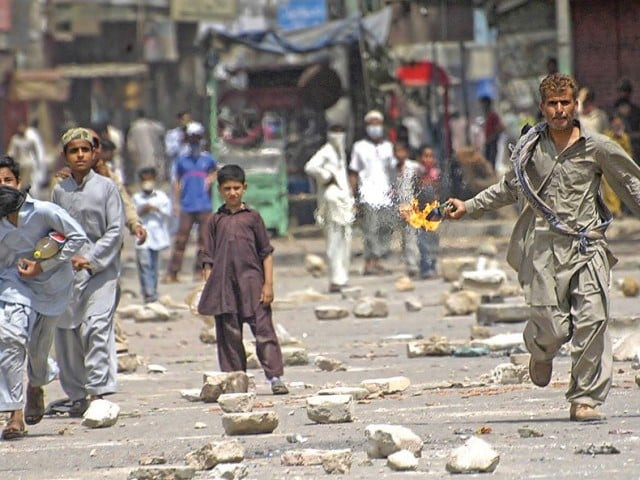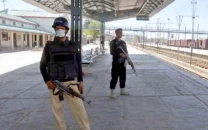LUMS conference: ‘Ignorance of rights causes social myopia’
Resistance stories and violence during struggles in Lyari were the focus of the paper presented by Kirmani

Resistance stories and violence during struggles in Lyari were the focus of the paper presented by Kirmani. PHOTO: RASHID AJMERI/EXPRESS
Daily struggles of nomadic (gypsy) communities over identity and citizenship were highlighted in a paper presented by Amen Jaffer, an academic at the Lahore University of Management Sciences (LUMS), at a session on the opening day of the 10th Annual LUMS Humanities and Social Sciences Conference held on Friday.
Discussing research undertaken for The Politics of Citizenship in Pakistan: Land and Urban Desires in Lahore paper, he said he had found that urban poor were not aware of most of their fundamental rights. Without adequate information about their constitutionally guaranteed rights, the poor were mostly striving to make ends meet, he said. He added that most of the time the poor pursued just short-term gains and were used by unscrupulous politicians and some state institutions for their vested interests.
He said right to housing was a common demand mentioned by most of his respondents. He said some of the respondents had owned properties in far-flung areas, but they longed for housing in the city because they lived and worked there.
Other papers presented in the session were Violence, Urban Anxieties and Masculinities: The Foot Soldiers of 2002, Ahmedabad by The University on Manchester’s Rubina Jasani and Resistance and its Limits: An Analysis of Protests to Urban Violence in Lyari, Karachi, by Nida Kirmani, a LUMS associate professor.
Jasani said that loot and plunder were the main concern for the foot soldiers in the 2002 riots that led to the killing of 2,000 Muslims and displacement of thousands of others.
In focus group sessions with these men, she said she had learnt that they were unemployed and took the riot as a welcome change from the daily routine. “They [the rioters] said it was like a festival in the area,” she said.
Jasani said the rioters were motivated by their frustration with their economic conditions. The first place that had been plundered was a jeans factory. She said some respondents told her about a grand party they had organised the night following the riot. “They said all of them wore pair of jeans taken from the factory that night. Some pairs were sold in the market to arrange funds for the party,” she said.
Resistance stories and violence during struggles in Lyari were the focus of the paper presented by Kirmani.
“Lyari has been at the centre stage in all anti-government movements in the country,” she said. She said Lyari residents had not extended their support for any of the four military dictators.
She criticised the Pakistan Peoples Party and the Muttahida Quami Movement (MQM) for using Lyari residents for their vested interests. She said none of the parties or their affiliates ever had tried to induct Lyari residents in leadership roles in their organisations.
Kirmani recalled the story of one of her respondents, Maryam, whose family had been harassed by the Peoples Amn Committee men to attend their protest demonstrations between 2008 and 2013. “They had no option but to participate in these gatherings. Once, the family turned down an invitation to attend a protest the gas supply to their house was disconnected,” she said. The PAC leaders would cater to the people’s needs in return for public support.
Kirmani emphasised that in the violent incidents she had documented in Lyari, ordinary residents were not just passive subjects. In many instances, she said the breakout of violence was a result of the challenge presented by them to those wielding power. “Resistance was highly constrained by relations of power,” she said.
The Urbanisation, Exclusion and Change in South Asia conference will continue on Saturday and Sunday.
Published in The Express Tribune, March 5th, 2016.



















COMMENTS
Comments are moderated and generally will be posted if they are on-topic and not abusive.
For more information, please see our Comments FAQ